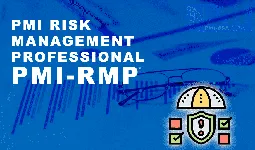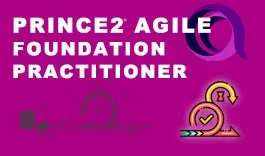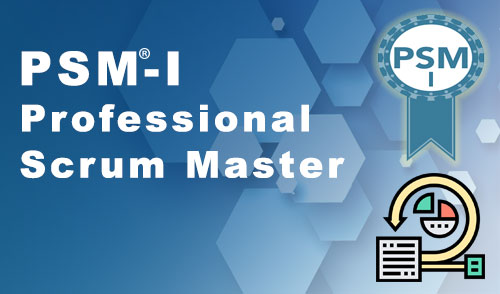List Of Traits An Effective Agile Scrum Master Must Possess
-
 By Nandini
By Nandini - Published on Aug 5 2022

List of Skills Agile Scrum Master Must Possess
Agile methodology has gained tremendous popularity in recent times and so has the importance of an effective scrum master in organizations. Managing a team, facilitating, exchanging the information, and keeping the process intact are some of the duties an agile scrum master performs.
However, it takes more than just qualifications and course certificates to be a great agile scrum master. Here’s our run-down of some of the most important agile scrum master traits an effective agile scrum master must possess, let’s get started!
Scrum Master Traits 1 - Prioritizing Team Development
A great scrum master values his/her team and thrives on its overall development. One of the scrum master traits is to understand the nuances of team management and the requirements of every member on a professional level.
It sets a good scrum master apart keeping effective scrum master traits.
Scrum Master Traits 2 - Ability to Recognize a Team Conflict
As much as we deny it, even on a professional level, conflicts are bound to happen. The traits of a scrum master are to recognize a possible/brewing conflict at an early stage and act on it.
Either by coming to a common conclusion or by imparting a necessary change, a scrum master must ensure that things don’t go out of control. Resolving conflict and preventing conflict is an art a scrum master should know.
Scrum Master Traits 3 - Encourages Leadership
One greatest traits of a scrum master are the quality of a leader is that he/she encourages leadership.
A great scrum master sets an example for others and helps them gain leadership qualities for better development. He/she doesn’t restrict the team’s growth and always acts as a supporter.
Scrum Master Traits 4 - Observer
The scrum master must possess good observational skills. By paying attention to the details and taking notes of even the minutest of details, one can avoid many problems. With acquiring such traits of a scrum master, managing a group of people is even easier.
Scrum Master Traits 5 - Is Empathetic and Supportive
It is a myth that professionalism means no emotions. In reality, empathy is and has always been one of the key traits of a scrum master.
Every top-level employee who manages a set of individuals is empathetic towards the team’s needs. Ensuring the team feels supported and valued is what makes a scrum master a great leader.
Scrum Master Traits 6 - A Good Coordinator and Facilitator
Catering to the needs of clients, customers, and even team members is a quality scrum master exhibit. While scrum masters are born coordinators ensuring good presentation and hospitality at the conducted events, they are also expected to be good facilitators; especially, when it comes to the needs of the team members.
Scrum Master Traits 7 - Well-Acquainted with Problem-Solving
Problem-solving is one of the most essential skills an agile scrum master can possess. Apart from recognizing the areas of the defect, situations of conflict, and potential crisis, the ability to solve these issues is a must. A great ASM should be well acquainted with problem-solving strategies.
Scrum Master Traits 8 - Brings Change
As the saying goes ‘change is the only constant’, the best traits of a scrum master are the people who are appreciative of change and look for opportunities to improve. With the changing world and evolvement of technology, incorporating disruptive changes becomes a must in the workplace. This is exactly what a scrum master focuses on.
Scrum Master Traits 9 - Quick and Tactful
Tactfulness plays as the best traits of a scrum master. On sensing an issue or a call for change, one should know to deal with the situation tactfully. It affects the overall progress of the team and even the business as well.
By being able to make quick, well-informed decisions in a tactful way, the future of a company seems secure in the hands of such an individual.
Scrum Master Traits 10 - A Respectful and Professional Guide
This is the best and certainly the most important quality an agile scrum master must possess. Being a great guide to the team makes any agile scrum master a leader.
Gaining respect and having people look up to you is the criterion that qualifies one as an effective agile scrum master. These are generally major traits of a scrum master.
Concluding Thoughts
In conclusion, alongside having the required qualifications and technical knowledge, the agile scrum master is required with effective scrum master traits, good leadership, and interpersonal skills.
Being a path setter to the team and ensuring their growth is the best way to make the most of the power an agile scrum master holds.
The job of a scrum master is both challenging and rewarding, and cultivating traits of a scrum master exactly makes this position a reputed one in the industry.
Subscribe to our Newsletters
Popular Programs
PSM® - Professional Scrum Master Certification
Live Virtual Training
- 4.5 (75 + Ratings)
- 70k + Learners
Trending Posts
Product Life Cycle Model: A Guide to Understanding Your Product's Success
Last updated on Oct 11 2023
Agile Principles Guide
Last updated on Apr 25 2023
Product Life Cycle in Marketing: Essential Strategies for Product’s Success
Last updated on Sep 28 2023
What is a Product Owner - Role, Objectives and Importance Explained
Last updated on Oct 17 2023
Why Should You Consider Getting a Scrum Master Certification?
Last updated on Feb 13 2024
Stakeholder Engagement Levels Guide
Last updated on Sep 16 2024
Categories
- Agile Management 54
- AI and Machine Learning 42
- Big Data 53
- Business Management 51
- Cloud Computing 44
- Digital Marketing 56
- Information Security 8
- IT Hardware and Networking 17
- IT Security 103
- IT Service Management 29
- Leadership and Management 1
- Microsoft Program 2
- Other 43
- Programming Language 31
- Project Management 162
- Quality Management 75
- Risk Management 8
- Workplace Skill Building 2
Trending Now
DevOps Vs Agile Differences Explained
ArticleDevops Tools Usage, and Benefits of Development Operations & VSTS
ArticleAgile Scrum Methodology - Benefits, Framework and Activities Explained
ArticleGuide to Agile Project Management 2024
Article10 best practices for effective DevOps in 2024
ArticleGuide to Becoming a Certified Scrum Master in 2024
ArticleWhy Should You Consider Getting a Scrum Master Certification?
ArticleCSM vs CSPO: Which Certification is Right for You?
ArticleAgile Manifesto - Principles, Values and Benefits
ArticleAgile Methodology Explained in Detail
ArticleAgile Project Management Explained
ArticleEssential Tools for Agile Project Management 2024
ArticleEverything about Scrum Methodology
ArticleScrum Workflow - A Step by Step Guide
ArticleLatest Agile Interview Questions and Answers To Look For In 2024
ArticleScrum Interview Questions and Answers 2024
ArticleTop Scrum Master Responsibilities 2024 (Updated)
ArticleProduct Life Cycle in Marketing: Essential Strategies for Product’s Success
ArticleDevOps Engineer Interview Questions - Best of 2024
ArticleDevOps Engineer - Career path, Job scope, and Certifications
ArticleBusiness Agility Guide - Importance, Benefits and Tips
ArticleScrum vs Safe – Differences Explained
ArticleCSM vs. PSM - Which Scrum Certification is Better?
ArticleSAFe Implementation Roadmap Guide
ArticleAgile Release Plan Guide
ArticleAgile Environment Guide
ArticleAgile Coaching Guide - Best Skills for Agile Coaches
ArticleAgile Principles Guide
ArticleSAFe Certifications List - Best of 2024
ArticleAgile Prioritization Techniques Explained
ArticleScrum Ceremonies Guide
ArticleProduct Owner Certifications List
ArticleScrum of Scrums Guide
ArticleWhat is DevSecOps and its Importance
ArticleData Processing - A Beginner's Guide
ArticleDevOps Career Guide 2024
ArticleStakeholder Engagement Levels Guide
ArticleScrum Master Career Path Explained
ArticleScrum Career Path Explained
ArticleTop Git Interview Questions and Answers [Updated 2024]
ArticleA guide to Agility in cloud computing
ebookProduct Roadmap: An Ultimate Guide to Successful Planning and Implementation
ArticleDMAIC Methodology - The Ultimate Guide
ArticleProduct Life Cycle Strategies: Key to Maximizing Product Efficiency
ArticleScrum Master Salary Trends in 2024
ArticleProduct Life Cycle Model: A Guide to Understanding Your Product's Success
ArticleWhat is a Product Owner - Role, Objectives and Importance Explained
ArticleSuccessful Product Strategies for Introduction Stage of Product Life Cycle
ArticleUnlocking Career Opportunities in Product Management: Your Roadmap to Success
ArticleSaturation Stage of Product Life Cycle: Complete Guide
ArticleCutting-Edge Technology of Google Cloud
ArticleHow to Write an Executive Summary for a Business Plan?
ArticleImportance of Procurement Management Software in Modern Business
Article


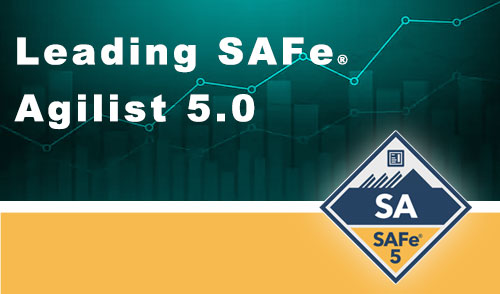

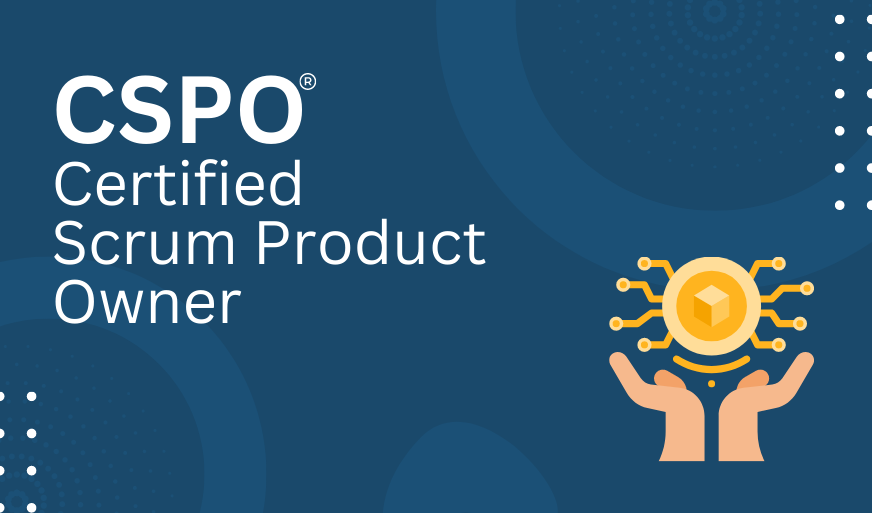
.webp)

